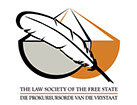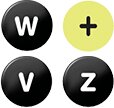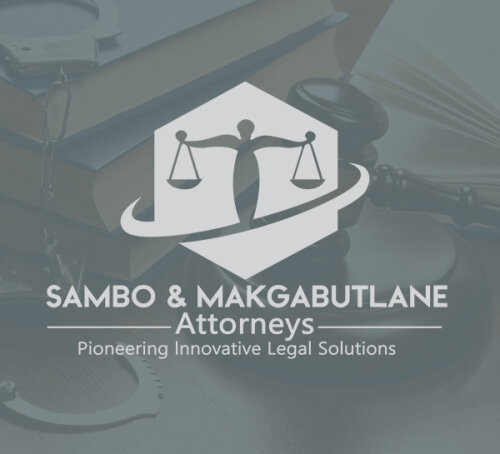Best Sanctions & Export Controls Lawyers in Pretoria
Share your needs with us, get contacted by law firms.
Free. Takes 2 min.
List of the best lawyers in Pretoria, South Africa
About Sanctions & Export Controls Law in Pretoria, South Africa
Sanctions and export controls refer to a specific area of law governing the cross-border movement of goods, services, software, technology, and capital in accordance with domestic regulations and international obligations. In Pretoria, as in the rest of South Africa, these laws are designed primarily to maintain national and international security, protect the country’s economic interests, and ensure compliance with international agreements. Government agencies such as the Department of Trade, Industry and Competition, the South African Reserve Bank, and the South African Revenue Service play leading roles in monitoring and enforcing sanctions and export controls. Compliance with these laws is essential, as violations can lead to severe penalties, including heavy fines and even imprisonment.
Why You May Need a Lawyer
Legal assistance in sanctions and export controls matters can be crucial for individuals and businesses. Some common situations where you may require a lawyer include:
- Assisting with licensing and permit applications for exporting sensitive goods or technology
- Advising on compliance with UN, African Union, or regional sanctions that South Africa is obliged to enforce
- Representing companies or individuals investigated for suspected violations of export control laws
- Providing legal opinions to multinational corporations about South African export restrictions
- Preparing for audits by relevant local authorities
- Navigating complex cross-border transactions, especially when dealing with embargoed countries or entities
- Risk assessments and development of internal compliance programs
- Challenges to administrative decisions on denied export licenses or asset freezes
Due to the shifting nature of global sanctions regimes and the complexity of South Africa’s legal framework, obtaining professional legal guidance ensures compliance and protects your interests.
Local Laws Overview
Sanctions and export controls in Pretoria are governed by several key pieces of legislation and policy frameworks. The main statutes include the National Conventional Arms Control Act, the Non-Proliferation of Weapons of Mass Destruction Act, and regulations issued by the Department of Trade, Industry and Competition. South Africa is also bound by United Nations Security Council sanctions, as well as African Union and SADC regional obligations.
Key aspects of the law you should be aware of include:
- Licensing: Exports of certain goods, technology, and services require a government-issued license.
- Prohibited Exports: Some items are strictly banned, especially those related to arms, dual-use goods, and materials that can contribute to weapons proliferation.
- Sanctions Compliance: South Africa enforces international sanctions against named countries, individuals, and organizations, which can include asset freezes and trade bans.
- Recordkeeping: Exporters must maintain thorough documentation of exported goods and transactions for regulatory review.
- Penalties: Non-compliance may lead to confiscation of goods, license revocation, substantial fines, and imprisonment.
- Enforcement: The South African Revenue Service (customs) and the National Conventional Arms Control Committee monitor and enforce compliance at national borders in Pretoria and throughout the country.
Frequently Asked Questions
What are sanctions in the context of Pretoria, South Africa?
Sanctions are government-imposed restrictions on doing business with certain countries, individuals, or entities, usually to comply with United Nations or African Union resolutions. These can include trade bans, asset freezes, and prohibitions on providing financial services.
What are export controls?
Export controls are laws that regulate the export of specific goods, services, software, and technology from South Africa. The goal is to prevent the spread of weapons, sensitive technology, and to uphold international commitments.
Do I need a permit to export goods from Pretoria?
In many cases, yes. If you are exporting controlled or sensitive goods from Pretoria, you will need to apply for an export permit from the relevant government body, such as the Department of Trade, Industry and Competition.
Which goods are subject to export controls?
Controlled goods include military equipment, dual-use items (those that can be used for civilian and military purposes), certain chemicals, technology, and some consumer goods depending on the destination country.
What happens if I violate export controls or sanctions laws?
Violations can lead to severe penalties, including fines, jail time, confiscation of goods, and permanent loss of export privileges in South Africa.
How can I check if a country or individual is under sanctions?
You can consult the latest lists published by the Department of International Relations and Cooperation, United Nations Security Council, or the South African Reserve Bank for up-to-date information about sanctioned countries and entities.
Can I apply for an exemption to sanctions or export controls?
This may be possible in certain circumstances, but requires formal application and strong justification. Legal counsel can advise you on eligibility and assist with the application process.
Are companies in Pretoria required to screen customers and partners for sanctions compliance?
Yes, companies are expected to conduct due diligence and screen third parties to avoid violating sanctions or export control laws.
How long does it take to obtain an export license?
The timeframe varies based on the goods, destination country, and the application’s complexity. It can take a few weeks to several months, so it is important to apply as early as possible.
What should I do if I am contacted by authorities about a sanctions or export control matter?
Contact a qualified legal professional immediately. Do not make any statements or provide documents without legal advice, as any information you provide could affect the outcome of the case.
Additional Resources
Several organizations and government bodies can provide further information and assistance on sanctions and export controls, including:
- Department of Trade, Industry and Competition (DTIC): Sets policy and grants export permits
- South African Reserve Bank: Administers financial sanctions and foreign exchange controls
- South African Revenue Service (Customs): Oversees the movement of goods at ports of entry and exit in Pretoria and nationwide
- Department of International Relations and Cooperation: Issues communications regarding international sanctions
- National Conventional Arms Control Committee: Manages licensing and compliance for arms exports
- South African Council for the Non-Proliferation of Weapons of Mass Destruction: Regulates materials and technologies with proliferation risk
- Industry associations and chambers of commerce: Offer compliance guidance and education events
- Local law firms specializing in trade, compliance, and export control matters
Next Steps
If you need legal advice or assistance with sanctions or export controls in Pretoria, South Africa, consider the following steps:
- Consult with a legal professional who specializes in trade, regulatory, or administrative law
- Gather all relevant documents related to your export or transaction, such as contracts, correspondence, and license applications
- Determine whether your goods, technology, or services are subject to local or international controls or prohibitions
- Conduct due diligence on the parties you intend to deal with
- Contact the relevant government agency for guidance if you are unsure about specific legal requirements
- Request a legal review of your compliance policies and procedures
- If you are facing an investigation or enforcement action, seek immediate legal representation before responding to authorities
Taking early and informed legal action can help you avoid costly penalties, delays, and disruptions in your business or personal affairs related to sanctions and export controls.
Lawzana helps you find the best lawyers and law firms in Pretoria through a curated and pre-screened list of qualified legal professionals. Our platform offers rankings and detailed profiles of attorneys and law firms, allowing you to compare based on practice areas, including Sanctions & Export Controls, experience, and client feedback.
Each profile includes a description of the firm's areas of practice, client reviews, team members and partners, year of establishment, spoken languages, office locations, contact information, social media presence, and any published articles or resources. Most firms on our platform speak English and are experienced in both local and international legal matters.
Get a quote from top-rated law firms in Pretoria, South Africa — quickly, securely, and without unnecessary hassle.
Disclaimer:
The information provided on this page is for general informational purposes only and does not constitute legal advice. While we strive to ensure the accuracy and relevance of the content, legal information may change over time, and interpretations of the law can vary. You should always consult with a qualified legal professional for advice specific to your situation.
We disclaim all liability for actions taken or not taken based on the content of this page. If you believe any information is incorrect or outdated, please contact us, and we will review and update it where appropriate.

















